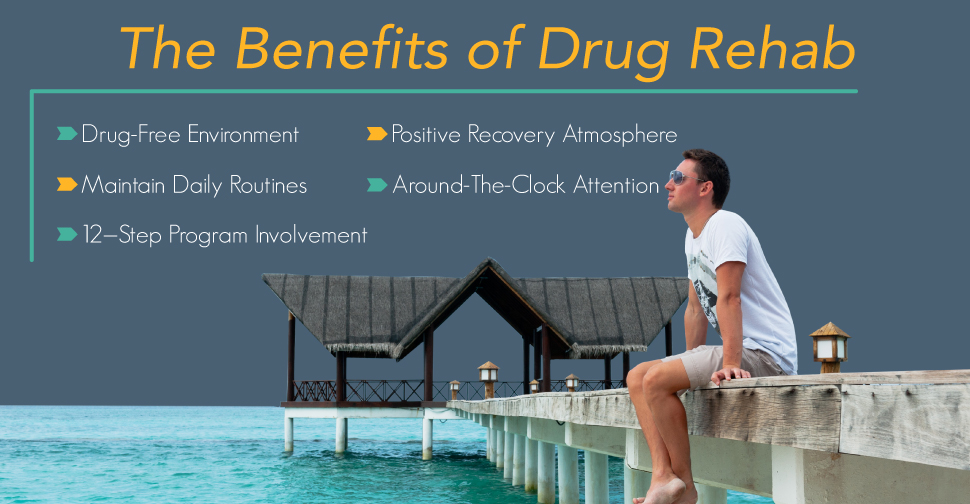
Rehabilitation for drug addiction comes in many forms and much too often, doesn’t come at all. When an addict doesn’t strive toward their own recovery, families of addicts will often push for their loved ones to seek counseling or attend meetings that encourage better behaviors. Less common, but all the better, some addicts do seek help for their problems and check themselves into a much-needed program. While there are several modes of rehabilitation, medications that dissuade users, therapies that focus on addiction recovery, attending drug rehab is among the highest in success rates.
Drug rehab can be both inpatient, meaning that an addict may stay overnight for the duration of their program, or outpatient, meaning the addict can return home after the day’s activities. During both types of rehabilitation, patients will find that they are given the tools they need to learn about their addiction and proceed toward a healthy future. While one type of drug rehab may be better for a recovering addict than the other, both have their beneficial points in terms of effective recovery and support.
Inpatient Rehab
Inpatient drug rehab allows for addicts to be in a completely drug-free environment, lending to a positive recovery atmosphere that differs from their usually drug infested lifestyle. While maintaining this atmosphere, many inpatient treatment centers allow for outside activity with 12-step programs, local meetings, and the chance to see through others how recovery can be later integrated into a normal life.
Being inside a facility means that the patient is among others who have experienced similar downfalls. Hearing from and being amongst those who are at a similar point or even further along the path to recovery allows the addict to understand even more about their disease. While having the company of others, the residential facilities also provide extra comforts that make detoxification and overnight stay easier. Spa treatments, religious activities, yoga, and specialized therapy are some of the features of inpatient care. First and foremost, inpatient rehabilitation allows for around-the-clock attention. Those who are binge users or long-time users have a better chance of recovery through this type of intense care.
Outpatient Rehab
While not as intense, outpatient rehab is still a positive experience for those who are primarily struggling to continue in their recovery or are new addicts. Outpatient care can help other addicts as well, but may better suit those who can still experience daily life without delving back into their user lifestyle. This style of rehabilitation is less costly and helps those who are more ready and willing to recover without court mandate or other outside pushes such as intervention. Outpatient rehab can include several program styles such as 12-step program involvement, cognitive behavioral therapy, social education, family treatment, and holistic care. More than anything, outpatient rehab allows for the recovering addict to maintain their routines with work, school, and loved ones. They can be around their normal support systems and not remove themselves entirely from the other aspects of life that they need to adhere to as recovering individuals.
 No matter what style of drug rehab an addict attends, the information they receive and the program they become involved in is going to be of a greater advantage than their current life. Drug rehab can benefit any type of addict as the programs are endless with new styles of rehabilitation emerging consistently and many being tailored to the needs of the specific addict with their recovery always being the ultimate goal. Contact us today. We can help provide you the information you need and answer any questions you may have.
No matter what style of drug rehab an addict attends, the information they receive and the program they become involved in is going to be of a greater advantage than their current life. Drug rehab can benefit any type of addict as the programs are endless with new styles of rehabilitation emerging consistently and many being tailored to the needs of the specific addict with their recovery always being the ultimate goal. Contact us today. We can help provide you the information you need and answer any questions you may have.
